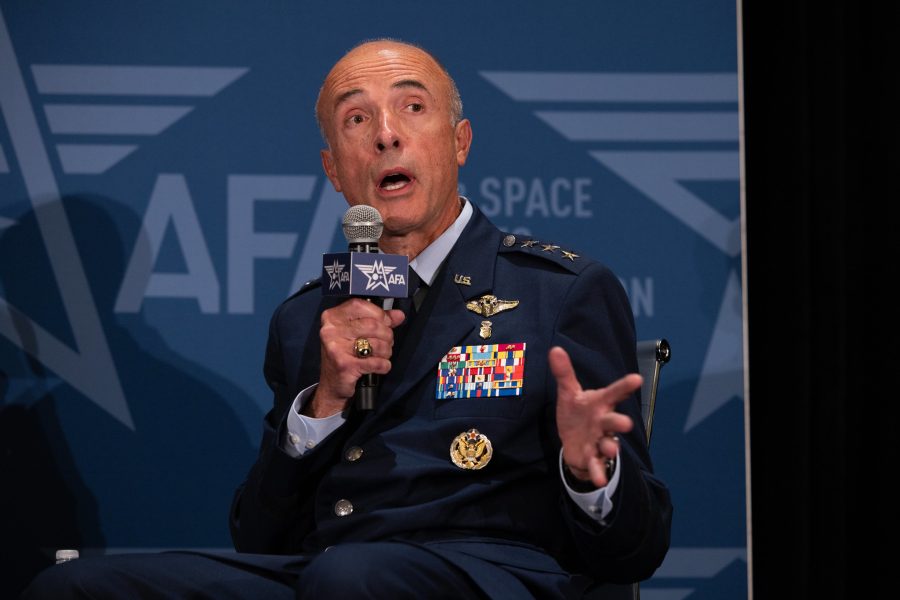Lt. Gen. Robert Miller, Surgeon General for the U.S. Air Force and Space Force, highlighted the need for a more unified care system across all major commands to help Airmen, Guardians, and their families locate mental health programs, physical therapy, and other medical support services. He said erasing confusion around important mental health services—like suicide prevention—requires “tearing down stovepipes and consolidating” providers into a single recognizable system.
“I personally couldn’t care less [what] we call it,” Miller told attendees on Sept. 12 at AFA’s Air, Space & Cyber Conference in National Harbor, Md. “We could go down the list of names. It’s all that same desire to support our folks.”
Miller spoke on a panel alongside Lt. Gen. Tom Miller, deputy chief of staff for logistics, engineering, and force protection, and Maj. Gen. Chaplain Randall E. Kitchens, chief of chaplains for the Department of the Air Force. The panel was moderated by Lt. Col. Angelina Stephens, Chief of Integration for the SECAF-CSAF Strategic Execution Group, a group charged by Air Force Chief of Staff Gen. Charles Q. Brown Jr. to “accelerate change in the arenas of mental health, wellness, and resilience.”
“It’s not all about the medics, although we play a part and there’s medical healing,” Lt. Gen. Robert Miller said. “At times you need Chaplains, spiritual healing. And at times you need a strong commander, fellow Airmen, Guardians, others that need to be there and provide that care when needed.”
The entire panel refuted critics who say spending time and money on personnel care is “in direct opposition to readiness” within the Department of the Air Force.
“The Chief says that airpower is the answer, and I’ve heard him many times say that Airmen are the reason why airpower is the answer. And that’s not lost on him, it shouldn’t be lost on any of us, that it’s not the machine that defends our nation,” Lt. Gen. Tom Miller said. “It’s intellectually dishonest to me to think that not thinking about the human being is somehow counter to readiness. It is readiness.”
The panelists also emphasized that silos between the Pentagon and military family members need to be dismantled to not only improve force readiness, but rebuild trust between the Air and Space Forces community.
“Trust is the currency of influence. And with no trust, the people will not follow. Well, that goes for families. And it is hard to regain that trust,” said Kitchens. “I’ve heard the silo comments and feedback also. I can agree 100 percent, we’re better together.”
“Change is a journey and the journey must continue,” said Stephens, quoting the theme of what was likely Brown’s final AFA September keynote as Air Force Chief of Staff. She and the panel said they are encouraged by leaders like Brown and Chief Master Sergeant of the Air Force JoAnne Bass, who are “empowering” medics, chaplains, and commanders to continue finding ways to make medical and mental health services more accessible to the total force.
